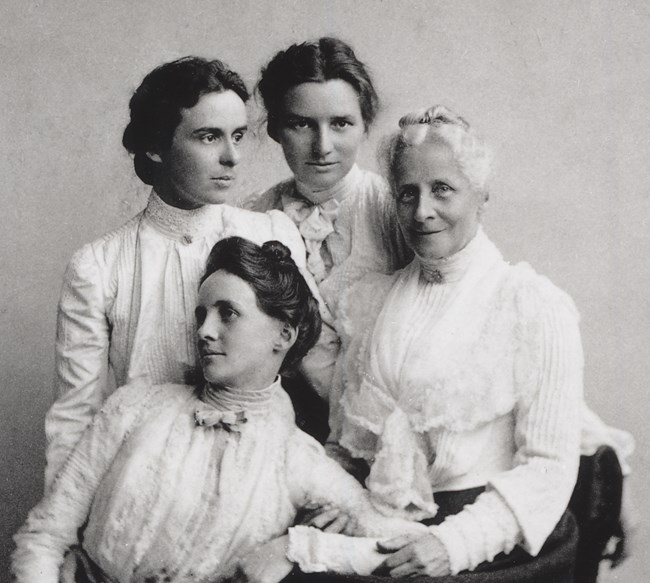
Billings Family Archives As Mary French Rockefeller began conversations with her husband Laurance about donating her family home to the National Park Service in the 1990s, initially she wanted to highlight the contributions of the women in her family to the legacy of their estate. After meaningful dialogue, the more general idea of a continuum of conservation became the primary focus of the park narrative. The Billings women embodied this value, and are visible in the resources they worked to maintain and improve over time. Julia and Frederick Billings had seven children together, three of whom were daughters that went on to inherit the property after their parents. Per Frederick’s wishes, the estate was kept intact throughout Julia’s lifetime, spanning twenty-four years beyond that of Frederick. When the next generation emerged, first Laura, then her sisters Mary Montagu and Elizabeth largely managed the property and home. These women continued to return to their Vermont home, “the Hill”, updating the gardens, adding more carriage roads for public use, contributing to philanthropy in the community and preserving much of the historical integrity of the Mansion. Laura became involved with the management of the farm, establishing an office on the farm so she could learn the accounting system and be directly involved with George Aitken’s vision. Elizabeth was involved with the reforestation plantations happening on Mt. Tom, documenting species in the Woodstock area, and continuing the ecological revitalization her father had commenced. Three generations of women, from Julia to Mary French Rockefeller, the daughter of Mary Montagu Billings French, fostered the conservation ideology across the estate’s landscape, and within the family’s home - continuing the legacy inspired by George Perkins Marsh. They understood the significance of their property as Marsh’s boyhood home and the setting for his early observations of the natural world. They also understood the importance of choosing to keep the estate intact, which in hindsight, was history in the making. In an era when, regardless of privilege, women made significant contributions without recognition, the Billings women stand out. Because of their dedication to this landscape, we can immerse ourselves today in a place that informed conservation on a national scale while representing the values of family, home, and care for our natural world. |
Last updated: April 10, 2023
